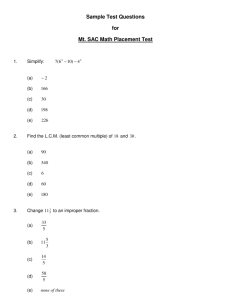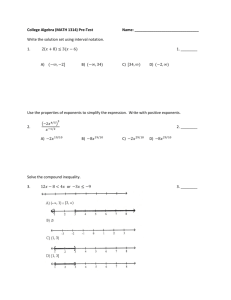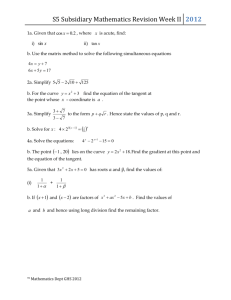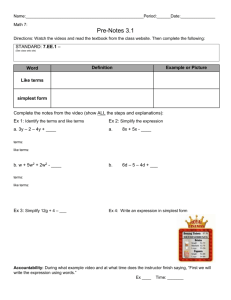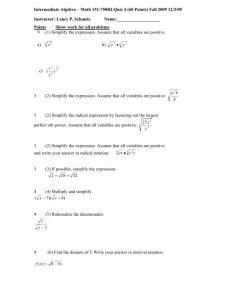Quiz3_chapter11
advertisement
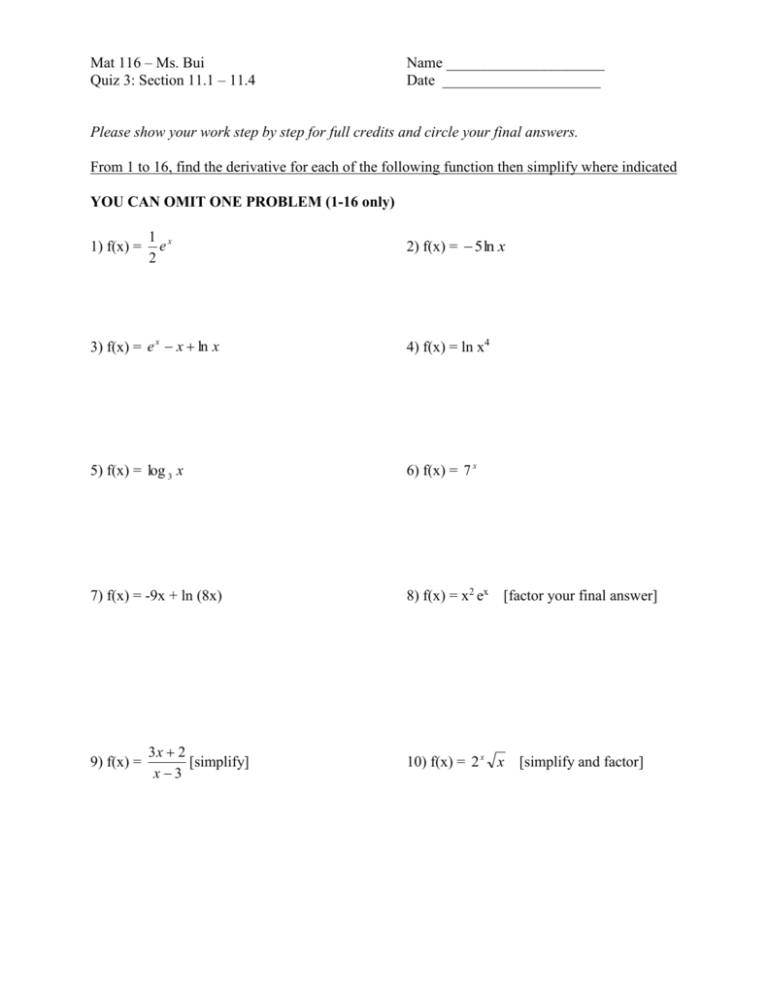
Mat 116 – Ms. Bui Quiz 3: Section 11.1 – 11.4 Name _____________________ Date _____________________ Please show your work step by step for full credits and circle your final answers. From 1 to 16, find the derivative for each of the following function then simplify where indicated YOU CAN OMIT ONE PROBLEM (1-16 only) 1) f(x) = 1 x e 2 2) f(x) = 5 ln x 3) f(x) = e x x ln x 4) f(x) = ln x4 5) f(x) = log 3 x 6) f(x) = 7 x 7) f(x) = -9x + ln (8x) 8) f(x) = x2 ex [factor your final answer] 9) f(x) = 3x 2 [simplify] x3 10) f(x) = 2 x x [simplify and factor] 11) f(x) = ( x 6 10) 2 [simplify] 12) f(x) = ln(3x - 2)8 13) f(x) = xe3x [simplify and factor] 14) f(x) = 15) f(x) = 1 [simplify] 2 x 3x 16) f(x) = [simplify] x 3 5 [simplify] x 10 2 3x [simplify] 17) Price-demand equation. The number x of popcorn makers people are willing to buy per week at a price of $p is given by x = 1000 40 p 75 with 20 ≤ p ≤ 100 A) Find dx/dp B) Find the demand when the price is $25 C) Find the instantaneous rate of change of demand with respect to price (dx/dp) when the price is $25. 18) Provident Bank offered a 10-year CD that earns 2.15% compounded continuously A) If $50,000 is invested in this CD, how much will it be worth in 12 years? B) How long will it take for the account to be worth $60,000? Number 19 and 20, you may OMIT ONE PROBLEM 19) Some developed nations have population doubling times of 300 years. At what continuous compound rate (in %) is the population growing? 20) The continuous compound rate of decay of carbon-14 per year is r = -0.0001532. How long will it take a certain amount of carbon-14 to decay to half the original amount? 21) Given f(x) = (3x – 1)2 A) Find the equation of the line tangent to the graph at x = 2. B) Find the value(s) of x where the tangent line is horizontal. Chapter 11- FORMULA SHEET • If f (x) = ex, then f ’(x) = ex 1 • If f (x) = ln x, then f ’(x) = x • If f (x) = ax, then f ’(x) = ax ln a • If f (x) = log a x , then f ’(x) = 1 x ln a • If f (x) = U · V, then f ’(x) = U’ V + V’ U • If f (x) = U , then f ’(x) = V U ' V V 'U V2 • If f (x) = kUn, then f ’(x) = kn Un-1 U’ Product Rule Quotient Rule General Power Rule Chain Rule Future value A = P e rt for compounded continuously P: principle, r: interest rate, t: number of years
